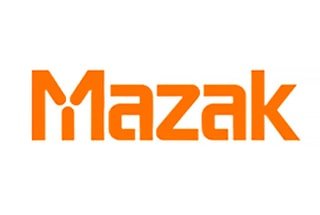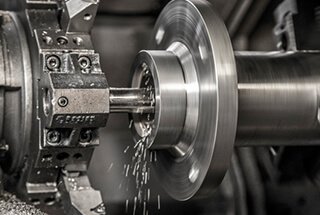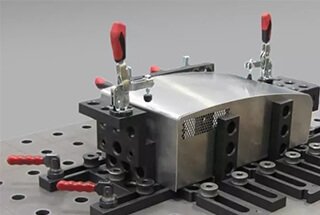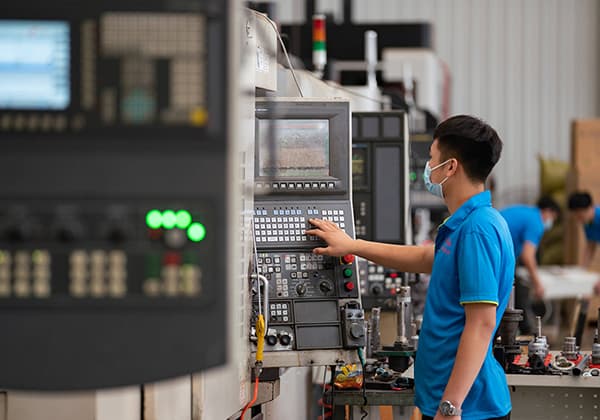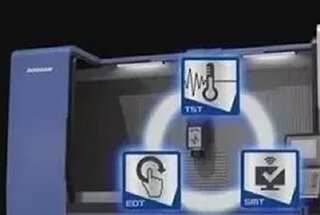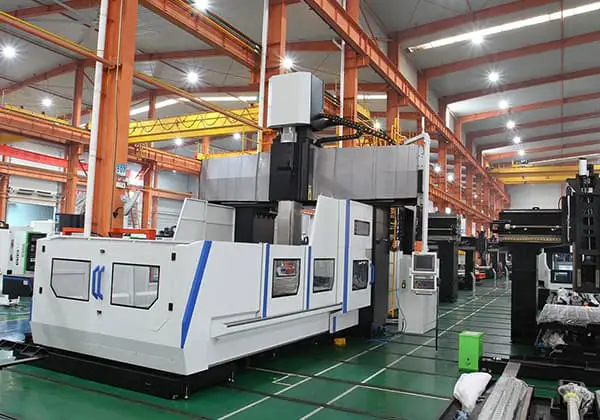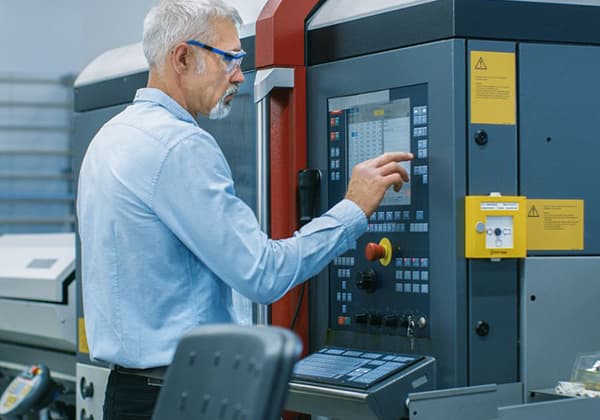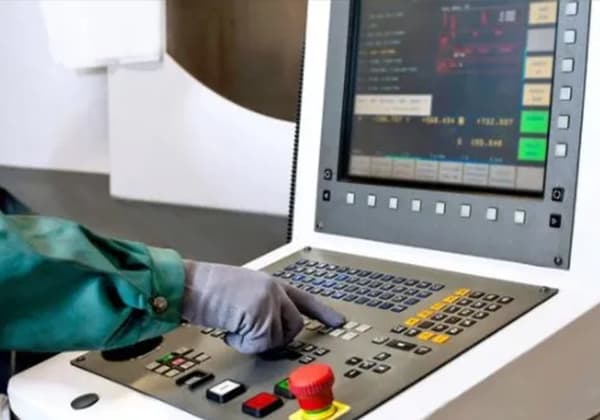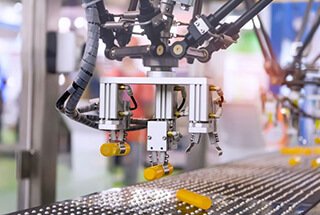
Have you ever wondered about the giants of the CNC machine industry? In this fascinating blog post, we’ll take a deep dive into the world of CNC manufacturing, exploring the top 10 global players that are shaping the future of precision engineering. Our expert analysis will provide valuable insights into their cutting-edge technologies, market dominance, and the impact they have on various industries. Get ready to be captivated by the innovation and excellence that define these industry leaders!
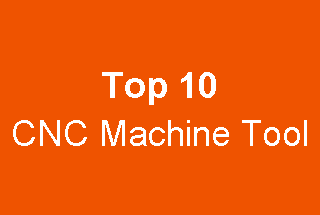
Recently, CCID Consulting released the 2022 ranking of the top 10 CNC Machine Manufacturers globally, including the best 10 CNC machine brands.
MAZAK from Japan secured the first position with $5.28 billion, followed by German company TRUMPF in the second position with $4.24 billion, and DMG MORI in the third position with $3.82 billion.
The remaining companies in the top 10 list are MAG, AMADA, OKUMA, MAKINO, GROB, HAAS, and EMAG.
The top 10 list is dominated by companies from Japan, Germany, and the United States. Japan and Germany each have four companies, while the US has two in the top 10 list.
Before we dive into the top 10 list, let’s learn more information about CNC machine tools.
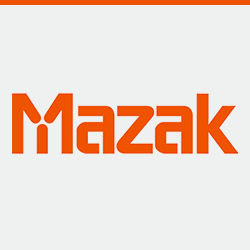
MAZAK is a well-known manufacturer of machine tools worldwide, established in 1919.
The company specializes in a wide range of CNC-related products, including lathes, lathe-mill cutting centers, vertical and horizontal machining centers, CNC laser systems, FMS flexible production systems, CAD/CAM systems, CNC devices, and production support software.
MAZAK’s products are highly recognized in the industry for their precision and high speed and are extensively used across various industries, including automobiles, machinery, electronics, energy, and the medical field.
The company has a robust global presence, with nine manufacturing facilities located in Japan, the United States, the United Kingdom, Singapore, and China.
Additionally, it has established over 30 technology centers in more than 60 locations worldwide and over 80 customer support bases, in conjunction with its worldwide Technical Centers.
With the ongoing development of manufacturing technology, automation, and digital technology, MAZAK continues to enhance and expand its offerings to customers globally.
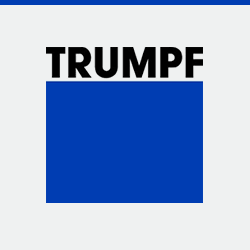
TRUMPF was founded by Christian Trumpf in Stuttgart, Germany, in 1923.
Initially, the company manufactured flexible shafts, but it eventually evolved into the TRUMPF Group.
During the 1960s, TRUMPF began working in the laser field, which resulted in the development of an industry-leading laser in the 1980s.
Incorporating laser technology into its product line has driven over 30 years of continuous growth and development.
Today, the TRUMPF Group specializes in producing a wide range of products, including various types of lasers and laser processing machine tools, as well as CNC punching and bending machines.
As a global leader in technology and market share in the industrial laser and laser system industry, the TRUMPF Group offers a diverse range of products, such as laser cutting machines, including plane and 3D models, punching machines, bending machines, welding robots, laser welding equipment, laser tube cutting machines, printing systems, 3D printing systems, punching laser machines, material storage systems, and automation devices.

DMG MORI is a well-known name in the industry. The company was formed by the merger of the German DMG and the Japanese Mori Seiki, creating a new global leader in CNC machine tools.
As a leading manufacturer of CNC machine tools, DMG MORI is a key player in high-end manufacturing, both in China and worldwide.
Its cutting-edge vertical, horizontal, and multi-axis lathe-mill cutting centers, as well as ultrasonic/laser machining centers, represent the latest technical advancements in the machine tool industry.
DMG MORI is dedicated to producing innovative and high-tech CNC machine tools, including CNC turning centers, milling centers, advanced processing technologies (ULTRASONIC/LASERTEC), software solutions, and automation systems.
The company offers a full range of industrial services, including machine tool maintenance and accessories, energy-saving solutions, and other services throughout the machine tool’s lifecycle.
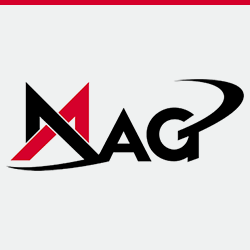
MAG is a globally recognized machine tool and automation system company that provides complete and custom machining solutions, primarily for the durable goods industry.
The company is associated with numerous well-known brands such as Berlinger, Cincinnati, Klaus Whelo, Exero, Fadao, Giddings Louis, Hessup, Honsberg, Wheelock, and Witsch Frank Wait, and is renowned for its excellent process technology and custom production solutions.
MAG caters to a wide range of industries, including aerospace, automobiles, heavy machinery, oil fields, rail transit, solar energy, wind turbine production, and general processing.
The company has manufacturing and technical support facilities worldwide, offering a broad range of products and technologies, such as turning, milling, gear hobbing, grinding, honing, system integration, composite machining, repair, industrial control systems, software, tools, oils, and core components.
As a leading supplier in the industry, MAG is widely recognized for its advanced process technology and personalized solutions.
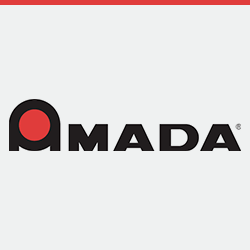
In 1946, Isamu Amada founded Amada Seisakusho, initially specializing in sheet metal machinery and cutting products.
In 1955, the company developed and began selling a bandsaw disk named “Contour.”
In 1965, it acquired the Torc-Pac brand in the United States and the Promecam brand in France, which it sold under the Amada name.
This led to a period of rapid growth for the brand and established its reputation as a world-class provider in the sheet metal industry.
Today, Amada is highly regarded in countries such as Japan, the US, and Europe for its wide range of sheet metal processing machinery, which includes nearly a thousand advanced and high-performing products.
The company’s development of an intelligent automatic sheet metal processing center in the 1990s was a significant milestone in the world’s sheet metal industry and earned the highest award for technological invention in Japan.
Amada’s main products are CNC punching machines, bending brakes, shearing machines, laser cutting machines, and other sheet metal processing machinery, as well as associated dies, spare parts, and cutting products.
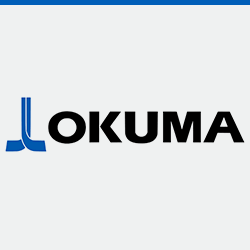
Okuma is a globally recognized company and Japan’s largest manufacturer of machine tools, including the largest producer of gantry machining centers worldwide.
With over a century of experience in the industry, it is also one of the largest CNC machine tool manufacturers worldwide.
For more than 100 years, Okuma has been producing various CNC lathes, turning centers, vertical and horizontal machining centers, gantry machining centers, and CNC grinders.
Its annual production exceeds 7,000 sets, and in 2006, its sales reached 170 billion yen, which is equivalent to approximately 1.5 billion US dollars.
Okuma exports half of its products worldwide. The company’s products are known for their high rigidity, efficient cutting, precision, longevity, and ease of use, receiving wide acclaim from customers globally.
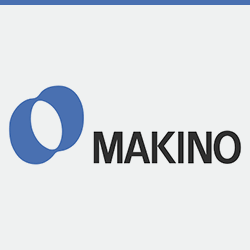
The company was founded by Mr. Tsunezo Makino in 1937 with a specialization in producing Type 1 vertical milling machines.
In 1958, Makino achieved a significant milestone by developing Japan’s first CNC milling machine, followed by the creation of Japan’s first machining center in 1966.
Makino primarily focuses on designing and producing three-axis and multi-axis linkage CNC machine tools, CNC systems, servo devices, components, and other related products.
The company is also engaged in research and development, including producing application software, and providing technology and maintenance services for its products.
Over the years, Makino Asia has grown into a comprehensive manufacturing company that encompasses manufacturing, research and development, product design, and business management.
Our company’s operations involve advanced processing, manufacturing, and assembly, and our product range includes the F and E series machining centers, EDAF and EDGE series EDM machines, DUO series, and the latest U3 wire cutting machine tools.
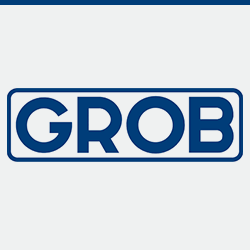
GROB, which was founded in 1926 in Munich, Germany, has its headquarters located in Mindelheim, Germany.
It is one of the world’s largest machine tool manufacturers, offering a wide range of products that includes standard machines, complex production systems, assembly cells, cutting lines, and fully automated assembly lines.
GROB is always at the forefront of innovation when it comes to its processes and technologies.
GROB specializes in complete turnkey engine components and is a global system integrator that has a broad range of processes, technologies, resources, and cultures.
To bring its cutting-edge technology to all areas, GROB engineers have developed a 5-axis simultaneous machining center, which has already gained widespread market recognition.
The company’s G-module technology and expertise in the automotive industry have been successfully applied to the design and technology of the G350 and G550.
Innovative achievements, such as non-hydraulic machine tools and turning-milling machining centers, have quickly gained success in the highly competitive general-purpose machine tool market.
As a result, the G550 has quickly become the leader in its product series.

HAAS Automation is among the largest manufacturers of CNC machine tools in the world. Its only manufacturing facility is situated in Oxnard, California, covering an area of over 100,000 square meters.
In 2006, HAAS produced more than 12,500 CNC machine tools annually.
Gene Haas introduced the Haas VF-1 vertical machining center, which set the industry standard for high-quality and high-value CNC processes.
This vertical machining center is equipped with a high-performance vector-driven spindle, high-torque brushless servo motors to power each axis, and a solid casting structure that provides added stability.
The machine tool configuration offers a wide range of applications, including 40 and 50-taper gear-driven models for high torque and heavy cutting, as well as SS models (featuring coaxial direct drive spindles) for high-speed machining.
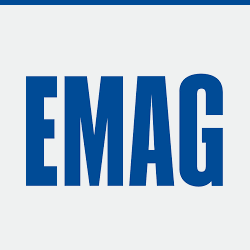
The origins of EMAG can be traced back to 1867, when the company was founded in Bautzen, Saxony, as a manufacturer of cast iron and machine tools.
In 1952, the company relocated to a site between Stuttgart and Ulm, near Salach, where it remains to this day.
After the relocation, the company began producing lathes.
Today, EMAG offers a comprehensive technology portfolio that provides customers with machine tools and production systems for processing disk parts, shaft parts, and box parts.
EMAG’s technology solutions include a range of machines such as lathes, grinding machines, gear hobbing machines, laser welding machines, and machining centers to provide the optimal production solution for any application.
With its advanced intelligent automation technology, EMAG helps customers streamline their equipment, improve efficiency, save costs, and drive the growth of their businesses.
The machine tools and production systems manufactured by EMAG Leipzig Maschinenfabrik GmbH are widely used in industries such as petroleum, automotive and its supporting industries, machinery manufacturing, and aerospace.
Since becoming part of the EMAG Group, the Leipzig facility has leveraged the combined technologies and experience of both companies to continuously develop and produce machine tools based on the EMAG series, targeting its own customer base.
Multi-tasking milling centers are advanced CNC machines that combine milling, turning, and sometimes additional processes like grinding or laser cutting within a single setup. These machines significantly reduce production time and improve accuracy by allowing the complete machining of complex parts in one go. For example, the Yamazaki Mazak INTEGREX series and DMG MORI’s NTX series are renowned for their high performance in the aerospace and automotive industries. These models offer features such as simultaneous 5-axis machining, high-speed spindles, and automated tool changers, enabling the efficient production of intricate components.
Vertical and horizontal machining centers are essential in various manufacturing processes. Vertical machining centers (VMCs), like the Haas VF series, have vertically oriented spindles ideal for drilling, boring, and milling tasks. Horizontal machining centers (HMCs), such as the Okuma MB-H series, feature horizontally oriented spindles suited for cutting and shaping large, heavy workpieces. These machines are known for their durability, precision, and ease of use, making them indispensable in the production of automotive parts, aerospace components, and industrial machinery.
CNC lathes and turning centers are crucial for shaping materials by rotating the workpiece against cutting tools. These machines can produce intricate cylindrical parts with high precision. The Okuma LB3000 EX II and Doosan Puma series are prime examples, widely used in the automotive and aerospace sectors for manufacturing components like shafts, gears, and engine parts. These models offer advanced features such as high-speed spindles, live tooling, and automated loading systems, enhancing productivity and precision.
CNC laser systems utilize laser technology for cutting, engraving, and marking materials with exceptional precision and speed. These systems are ideal for producing intricate designs and are commonly used in the electronics, medical, and metal fabrication industries. The Trumpf TruLaser series and Amada’s LCG series are prominent examples, known for their high efficiency and advanced features such as fiber laser technology, which offers faster cutting speeds and lower operating costs compared to traditional CO2 lasers.
Flexible Manufacturing Systems (FMS) integrate various machining processes into a single automated system, enhancing productivity by allowing seamless transitions between different tasks. Manufacturers like Mazak and DMG MORI offer comprehensive FMS solutions that are particularly beneficial in tool and mold making, as well as in high-volume production environments. For instance, the Mazak PALLETECH System and DMG MORI’s WH Flex Cell provide automated workpiece handling and storage, reducing downtime and improving overall efficiency.
CAD/CAM (Computer-Aided Design and Computer-Aided Manufacturing) systems are vital for modern manufacturing processes. These software solutions enable the design and production of complex parts with high precision and consistency. Leading CNC machine manufacturers such as Mazak and Okuma provide advanced CAD/CAM systems like Mazatrol and Okuma’s OSP Suite, which support seamless integration between design and manufacturing, ensuring optimal performance and quality.
In addition to standard CNC machines, top manufacturers offer specialized machines tailored for specific applications. For example, Makino provides high-precision machines for mold and die making, such as the Makino V33i, while Fanuc specializes in CNC machines integrated with advanced robotics and automation solutions, like the Fanuc Robodrill. These specialized machines address the unique requirements of industries such as aerospace, medical device manufacturing, and semiconductor production.
Many CNC machine manufacturers provide production support software that enhances the overall machining process. This software includes features like real-time monitoring, predictive maintenance, and adaptive control, ensuring optimal machine performance and minimizing downtime. Companies like DMG MORI and Mazak offer comprehensive production support software, such as DMG MORI’s CELOS and Mazak’s Smooth Technology, which help manufacturers achieve higher efficiency and productivity by providing intuitive interfaces and advanced data analysis tools.
Automation and robotics have revolutionized CNC machining, significantly enhancing productivity and precision. Advanced robotic systems are now integrated into CNC machines for automated tool changes, material handling, and continuous production cycles. These innovations reduce manual errors, improve product quality, and increase overall efficiency. For instance, systems like the CubeBOX can operate multiple CNC machines continuously without downtime. A case study from a leading manufacturing company showed that integrating CubeBOX reduced production time by 40% and decreased manual labor costs by 30%, demonstrating the profound impact of such technologies.
AI and ML are playing pivotal roles in the evolution of CNC machining. AI technologies optimize design processes, predict assembly relationships, and streamline operational management. Siemens’ AI-assisted tools are used for design optimization and predictive maintenance. These tools enable real-time data analysis and data-driven decision-making, enhancing the efficiency and reliability of CNC machining operations. For example, predictive maintenance systems can forecast equipment failures, reducing downtime and maintenance costs by up to 20%.
Smart manufacturing integrates Industry 4.0 technologies, including the Internet of Things (IoT), data analytics, and cloud computing, transforming CNC machining. These technologies enable CNC machines to connect with a network of devices and systems, allowing real-time data sharing and communication. This connectivity improves production control, optimizes resource utilization, and reduces operational costs. In smart factories, IoT sensors and devices monitor machinery conditions and performance, enabling predictive maintenance and real-time adjustments. A manufacturing plant utilizing smart technologies reported a 25% increase in productivity and a 15% reduction in operational costs.
There is a growing focus on the development and use of advanced materials and tooling in CNC machining. Materials such as carbon fiber reinforced polymers (CFRP), advanced composites, and high-performance ceramics are being utilized to produce parts with superior strength, lightness, and durability. Cutting tools made from materials like polycrystalline diamond (PCD) and cubic boron nitride (CBN) offer improved wear resistance, cutting speed, and finish quality, further enhancing machining performance. For example, PCD tools are used extensively in the automotive industry for machining aluminum components, significantly increasing tool life and reducing production costs.
Hybrid manufacturing combines additive manufacturing (3D printing) with traditional CNC machining. This approach integrates the precision of CNC machining with the versatility of additive manufacturing, enabling the creation of complex parts with minimal waste and faster production timelines. Technologies such as Laser-Based Additive Manufacturing, Directed Energy Deposition (DED), and Wire Arc Additive Manufacturing (WAAM) are being adopted to achieve these benefits. DED, for example, uses focused thermal energy to fuse materials by melting as they are being deposited, which is ideal for repairing and adding features to existing components.
Multi-axis machining, particularly 5-axis and 6-axis technologies, is revolutionizing the production of complex shapes. These machines allow the production of intricate geometries in a single setup, reducing the margin for error and shortening production timelines. This technology is crucial for industries that require high precision and complex part production, such as aerospace and medical devices. For instance, in the aerospace industry, 5-axis machining is used to produce turbine blades with precise contours and complex geometries, ensuring high performance and reliability.
Digital supply chain solutions and interconnected technologies enhance the efficiency and productivity of CNC machining. IoT sensors and devices, combined with advanced data analytics, are integrated into CNC control systems, allowing for real-time monitoring, predictive maintenance, and optimized operational efficiency. This interconnectedness enables smart, lean, and adaptive manufacturing processes that can respond swiftly to market demands and operational challenges. An example is the use of digital twins, which are virtual replicas of physical assets that help in simulating and optimizing production processes, leading to improved decision-making and reduced time-to-market.
When evaluating CNC machine manufacturers, several key factors should be considered to ensure you select the best fit for your specific needs. These factors include quality standards, technological capabilities, customer support, and industry-specific solutions.
High-quality CNC machines are essential for precision and reliability in manufacturing. Look for manufacturers that adhere to international quality standards such as ISO 9001. These certifications indicate that the manufacturer follows best practices in their production processes, ensuring the machines’ quality and consistency. For instance, a leading aerospace component manufacturer reported a 20% reduction in defects after switching to an ISO 9001-certified CNC machine producer. Compliance with industry-specific standards, such as AS9100 for aerospace or IATF 16949 for automotive, further guarantees that the machines meet stringent requirements.
Technological advancements are crucial in the CNC machining industry. Leading manufacturers invest heavily in research and development to stay at the forefront of innovation. Key technological capabilities to consider include:
Machines that operate on multiple axes, such as 5-axis or 6-axis CNC machines, allow for complex and precise machining tasks. This capability reduces setup time, improves accuracy, and enhances the ability to create intricate parts in a single setup. For example, a medical device company improved production efficiency by 35% by adopting 5-axis CNC machines, enabling the creation of complex components with fewer manual interventions.
Automated systems and robotic integration enhance productivity by reducing manual intervention and increasing operational efficiency. Automation leads to significant ROI by decreasing labor costs and minimizing errors. A case study from an automotive parts manufacturer showed a 40% increase in production rates and a 25% reduction in operational costs after integrating robotic automation with their CNC machines.
Machines equipped with advanced control systems offer features like real-time monitoring, adaptive control, and predictive maintenance. These systems ensure optimal performance and minimize downtime. For instance, a study found that companies utilizing predictive maintenance on CNC machines experienced a 15% reduction in unscheduled downtime, leading to increased production continuity.
Some CNC machines now incorporate 3D printing capabilities, allowing for a hybrid approach that combines subtractive and additive processes for greater flexibility and efficiency. This integration enables manufacturers to produce complex geometries and reduce material waste. A notable example is a custom tool manufacturer that reduced lead times by 50% and material costs by 30% by using hybrid CNC machines.
Strong customer support is vital for the successful operation and maintenance of CNC machines. Evaluate manufacturers based on their customer service, availability of technical support, and responsiveness to issues. Positive customer feedback and reviews can provide insights into the reliability and performance of the machines. Manufacturers with a robust support network and comprehensive service plans are more likely to offer long-term satisfaction and success. For instance, a survey revealed that 85% of customers who received 24/7 technical support from their CNC machine supplier reported higher satisfaction and fewer operational disruptions.
Different industries have unique requirements, and some manufacturers specialize in catering to these specific needs. Consider the following examples:
The geographical presence of a manufacturer can impact the availability of support and service. Leading CNC machine manufacturers often have a global footprint, with manufacturing facilities, technology centers, and service locations worldwide. This extensive network ensures that customers receive timely support and access to the latest technological advancements. For example, a global electronics manufacturer benefited from having local service centers, resulting in a 20% reduction in machine downtime and faster access to spare parts.
By considering these factors and evaluating the specialized offerings of each manufacturer, businesses can make informed decisions when selecting the best CNC machine to meet their specific needs.
When considering the purchase of a CNC machine, several options and factors can significantly influence your decision. Understanding these aspects can help you make an informed choice that aligns with your specific needs and budget.
Purchasing directly from CNC machine manufacturers is a common option. This approach offers several advantages, including access to the latest models, direct warranties, and comprehensive customer support. For example, a small manufacturing company purchased a new CNC machine directly from Haas Automation. This allowed them to benefit from the latest technology, receive extensive training, and leverage the manufacturer’s support network. Direct purchases often come with training programs and installation services to ensure smooth integration into your operations.
Many CNC machine manufacturers partner with authorized dealers and distributors to expand their reach. These dealers typically offer a range of models from different brands, allowing you to compare options in one place. For instance, a mid-sized automotive parts supplier opted to buy through an authorized dealer, gaining access to multiple brands and receiving localized support for maintenance and repairs. It’s crucial to verify the dealer’s credibility and ensure they are officially authorized to sell and service the machines.
Certified pre-owned CNC machines are a viable option for those looking to save costs without compromising on quality. These machines undergo thorough inspections and refurbishments by the manufacturer or authorized dealers, ensuring they meet specific performance standards. A small metalworking shop benefited from purchasing a certified pre-owned machine from Fadal, saving approximately 40% compared to a new model while still receiving a warranty and support. Industry statistics indicate that buying used machines can save businesses between 20-50% of the cost of new ones, depending on the machine’s age and condition.
Auctions and online marketplaces can be excellent sources for finding used CNC machines at competitive prices. Platforms like eBay, Machinio, and BidSpotter list various machines from different sellers. A startup in the aerospace sector successfully acquired a high-quality CNC machine through an online auction, paying 30% less than the market price for a similar new machine. While these options can be cost-effective, it’s essential to conduct due diligence, including inspecting the machine’s condition, verifying the seller’s reputation, and understanding the terms of sale.
Leasing is an attractive option for businesses that prefer to avoid the upfront capital expenditure of purchasing a CNC machine. Leasing agreements can be flexible, with terms ranging from short to long-term, and often include maintenance and service packages. A custom furniture manufacturer leased a CNC machine, allowing them to preserve capital for other investments and upgrade to a newer model at the end of the lease term. This option ensures businesses have access to the latest technology without significant upfront costs.
Many CNC machine manufacturers and dealers offer financing plans to help spread the cost of the machine over time. These plans can include low-interest rates, deferred payments, and flexible repayment terms. Financing allowed a precision engineering firm to invest in a high-quality machine from DMG MORI without straining their cash flow, enabling them to enhance their production capabilities. It’s advisable to compare different financing options and understand the total cost, including interest and fees, before committing.
Some manufacturers offer customization options to tailor CNC machines to specific requirements. This can include modifications in machine size, additional features, or specialized tooling. A medical device manufacturer customized their CNC machine to handle unique materials and intricate designs, significantly improving their production efficiency and product quality.
As technology evolves, manufacturers often provide upgrade packages for existing CNC machines. These packages can include software updates, new control systems, or additional functionalities like automation integration. Upgrading an existing machine can be a cost-effective way to improve performance and extend its lifespan. For example, a large-scale electronics manufacturer upgraded their CNC machines with the latest software, boosting productivity by 25% and reducing downtime.
When purchasing a CNC machine, it’s crucial to consider the total cost of ownership (TCO), which includes not only the purchase price but also operating costs, maintenance, and potential downtime. Factors such as energy consumption, the availability of spare parts, and the cost of consumables should be evaluated. Investing in machines from reputable brands with robust support networks can minimize unexpected expenses and ensure long-term reliability. For instance, a study showed that companies investing in high-quality CNC machines with strong support networks experienced 30% fewer breakdowns and 20% lower maintenance costs over five years.
By exploring these purchasing options and carefully evaluating each aspect, you can make a well-informed decision that meets your machining needs and budget constraints.
Below are answers to some frequently asked questions:
The top CNC machine manufacturers are recognized for their advanced technology, precision, and reliability in the global market. Leading the industry are Yamazaki Mazak, DMG MORI, Okuma, Haas Automation, and Fanuc.
Yamazaki Mazak, founded in Japan in 1919, offers a wide range of CNC machines, including lathes, milling centers, and laser systems, serving industries such as aerospace and automotive. DMG MORI, a result of a merger between German and Japanese companies, is known for high-precision machines, particularly in aerospace and automotive sectors.
Okuma, established in 1898, is renowned for its CNC lathes, machining centers, and grinders, noted for their rigidity and precision. Haas Automation, an American company founded in 1978, is popular for its affordable and user-friendly mid-range CNC machines. Fanuc, founded in 1956 in Japan, is a leader in industrial automation and robotics, also providing a line of CNC machines integral to various manufacturing sectors.
Additionally, specialized manufacturers like Amada, Makino, MAG Industrial Automation Systems, Trumpf, EMAG, GF Machining Solutions, Doosan Machine Tools, and Star Micronics offer specific expertise in areas such as sheet metal machinery, high-precision machining, and metal component manufacturing.
When selecting a CNC machine manufacturer, it’s essential to consider factors such as quality standards, technological capabilities, and customer feedback to ensure they meet specific needs and maintain high standards of precision and innovation.
Leading CNC machine manufacturers produce a diverse range of machines tailored to various industries and applications. Here are some key types of CNC machines produced by top manufacturers:
Mazak manufactures CNC lathes, multi-tasking milling centers, vertical and horizontal machining centers, CNC laser systems, Flexible Manufacturing Systems (FMS), and CAD/CAM systems. DMG MORI offers vertical, horizontal, three-axis, four-axis, and five-axis machining centers, turn-mill centers, ultrasonic and laser processing centers, and machines for additive manufacturing (3D printing). Okuma produces CNC lathes, turning centers, vertical, horizontal, and gantry machining centers, CNC grinders, and 5-axis machining centers. Haas Automation is known for CNC lathes, horizontal and vertical machining centers, 5-axis machining centers, CNC routers, and rotary products. Makino specializes in high-precision CNC machines for mold and die making, aerospace, and medical device manufacturing, including horizontal 4-axis and 5-axis machines, vertical 3-axis machines, and graphite machining machines.
Amada focuses on sheet metal machinery, including laser cutting, punching, and bending machines. TRUMPF produces industrial lasers and sheet metal machinery, including laser cutting, punching, and bending machines. EMAG specializes in CNC machines for machining metal components, such as turning machines, grinding machines, gear cutting machines, and laser welding and electrochemical machining technologies. GROB manufactures standard machine tools to complex production systems, including cutting lines and fully automatic assembly lines. MAG Industrial Automation Systems offers grinders, milling machines, and turning centers.
Fanuc is known for industrial automation and robotics, including CNC machines, robots, and controllers. GF Machining Solutions produces milling machines, Electrical Discharge Machining (EDM) machines, and laser cutting machines. Doosan Machine Tools (now DN Solutions) offers turning centers, machining centers, boring mills, and other machining technologies.
These manufacturers cater to a variety of industries, including aerospace, automotive, medical, energy, and metal fabrication, focusing on precision, efficiency, and innovation.
Choosing the right CNC machine manufacturer involves evaluating several critical factors to ensure they can meet your specific project needs effectively. First, consider the range of CNC machining services offered. A manufacturer that provides a diverse array of services, including both standard and specialized techniques, can handle various project requirements in-house, reducing production delays and costs. Quality and precision are paramount; look for manufacturers with robust quality control processes and modern high-performance machines. Their commitment to delivering high-quality parts is crucial.
Industry experience and expertise are also significant indicators of a reliable manufacturer. Those with experience across multiple sectors, such as aerospace, automotive, and medical, are more likely to manage complex projects and adhere to industry regulations. A strong engineering department is essential for optimizing part design and manufacturing efficiency. Manufacturers that utilize Design for Manufacturability (DFM) methods and provide valuable input during the design process can significantly enhance project outcomes.
Reputation and customer satisfaction should not be overlooked. Reviewing customer testimonials, case studies, and the manufacturer’s track record can provide insights into their reliability and quality of service. Transparency and clear communication are vital for a successful partnership, ensuring that the manufacturer is open about their processes and responsive to your needs.
Timely delivery and fast turnaround times are crucial to meeting project deadlines without compromising quality. While cost is an important factor, it should be weighed against the overall value provided, including the complexity of parts, tooling requirements, and the number of machining processes involved.
The type and quality of the machinery used by the manufacturer are critical for achieving better accuracy, repeatability, and speed. Ensure the machines’ configurations align with your specific needs. Lastly, reliable technical support and maintenance services are essential for ongoing operations, including compatibility with your CAD/CAM software and control systems.
By carefully evaluating these factors, you can select a CNC machine manufacturer that ensures high-quality outcomes, efficient production, and a successful long-term partnership.
Top CNC machine manufacturers are incorporating several technological innovations to enhance the capabilities, efficiency, and precision of their machines. One significant advancement is the integration of Industry 4.0 and smart manufacturing technologies, such as the Internet of Things (IoT), data analytics, and artificial intelligence (AI). These technologies enable real-time data monitoring, automation, and machine connectivity, which improve production control, reduce downtime, and optimize resource utilization.
AI and machine learning are also playing a crucial role in the evolution of CNC machines. These technologies enable predictive maintenance, optimizing machining processes through real-time adjustments of feed rates, cutting speeds, and tool paths. This results in higher precision, enhanced efficiency, and improved quality control by reducing waste and ensuring consistent accuracy.
Advanced automation and robotics are being integrated with CNC systems to automate tool changes and material handling, significantly boosting production speed and minimizing human error. This level of automation reduces downtime and makes the production of complex designs more feasible and efficient.
Digitalization and data analytics are transforming traditional machine shops into highly networked and automated environments. The use of advanced sensors, IoT, and data-driven processes allows for real-time analysis, quicker problem resolution, and better team collaboration, streamlining processes and reducing manual intervention.
Multi-axis machining, particularly with 5-axis and 6-axis machines, is becoming more prevalent. This technology enables the production of complex shapes in a single setup, reducing errors, shortening production timelines, and increasing precision and complexity in part manufacturing.
Hybrid manufacturing, which combines additive manufacturing (3D printing) with traditional CNC machining, is another significant innovation. This approach optimizes material usage, accelerates production timelines, and enables the creation of complex geometries that were previously unachievable, benefiting industries like aerospace, medical, and automotive.
The use of advanced materials and tooling, such as high-performance composites, carbon fiber reinforced polymers (CFRP), and ultra-durable cutting tools made from polycrystalline diamond (PCD) and cubic boron nitride (CBN), is also on the rise. These materials enhance wear resistance, cutting speed, and finish quality, making CNC machining more versatile and essential across various industries.
Adaptive manufacturing, powered by Industry 4.0 technologies, allows CNC machines to adjust to varying production demands in real-time through advanced sensing, data analytics, and control systems. This flexibility provides a competitive edge over traditional manufacturing methods.
Finally, augmented reality (AR) technology is being used to improve training and operations in CNC machining. AR provides immersive training experiences and overlays digital information onto physical machinery, guiding operators through complex setups or troubleshooting procedures, thereby enhancing precision and reducing errors.
These technological innovations are not only improving the precision and efficiency of CNC machining but also setting new standards for sustainability, resilience, and adaptability in the manufacturing industry.
CNC (Computer Numerical Control) machines are utilized across a wide range of industries due to their precision, efficiency, and versatility. The aerospace industry relies on CNC machines for producing high-precision parts like airfoils and landing gear, which require tight tolerances and high accuracy for safety and compliance. In the automotive sector, CNC machining is essential for manufacturing parts such as engine blocks and brake discs, working with various materials to ensure high-performance vehicles.
The medical industry heavily depends on CNC machines for producing precise medical tools, implants, and surgical instruments, ensuring these products meet strict safety standards. In the electronics industry, CNC machines are crucial for creating high-precision components like circuit boards and RF components, which need to fit together perfectly for flawless device functioning.
The oil and gas industry uses CNC machines to produce parts with critical tolerances and complex geometries, such as drill bits and valves, essential for the precise functioning of drilling rigs and refineries. The marine industry benefits from CNC machining for creating durable components like propellers and engine parts. In agriculture, CNC machines help manufacture parts for tractors and irrigation systems, enhancing the efficiency of agricultural tools.
The jewelry industry uses CNC machines for creating intricate patterns and designs, especially in etching and engraving. The energy sector, including renewable energy systems, relies on CNC machining for producing parts for wind turbines and solar panels, ensuring their reliability and accuracy. Additionally, CNC machines are used in producing industrial machinery, food and beverage equipment, and consumer goods, ensuring the accurate functioning and reliability of these products.
Top CNC machine manufacturers serve these diverse industries by providing high-volume precision turned parts and specialized CNC machining services, leveraging advanced technology to meet the precise and complex requirements of their clients.

